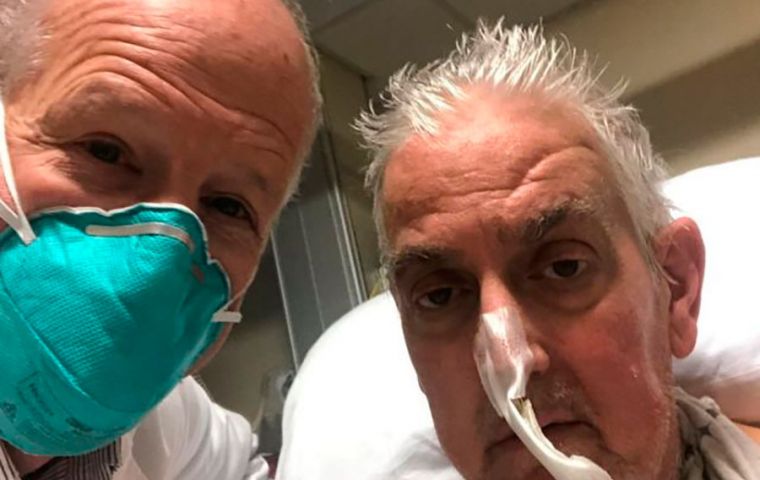MercoPress. South Atlantic News Agency
Pig heart transplant patient dies
 Bennett was fully informed of the risks of the procedure, which would be experimental with unknown risks and benefits.
Bennett was fully informed of the risks of the procedure, which would be experimental with unknown risks and benefits. The 57-year-old patient with a terminal heart condition, who became the first person to receive a genetically modified pig heart, has died Tuesday, the University of Maryland Medical Center in the United States reported.
David Bennett had received the transplant Jan. 7, but since March 4 his health began to deteriorate. He received compassionate palliative care after confirming the patient's impossible recovery.
“We are devastated by the loss of Mr. Bennett. He proved to be a brave and noble patient who fought to the end. We express our sincere condolences to his family,” said Bartley P. Griffith, M.D., the surgeon who performed the operation at the University of Maryland Medical Center (UMMC).
“Bennett became known to millions of people around the world for his courage and strong will to live,” added Dr. Griffith in a statement.
Muhammad M. Mohiuddin, Professor of Surgery and Scientific Director of the Cardiac Xenotransplantation Program at UMSOM, has expressed his appreciation to Bennett for having a “unique and historic role” in helping to contribute a wide range of expertise to the field of xenotransplantation.
Bennett first arrived at UMMC as a patient in October 2021, where he was bedridden and placed on a heart-lung bypass machine, called extracorporeal membrane oxygenation (ECMO), to stay alive. He was deemed ineligible for a conventional heart transplant.
Before consenting to receive the transplant, he was fully informed of the risks of the procedure, which would be experimental with unknown risks and benefits. On December 31, the U.S. Food and Drug Administration (FDA) granted an emergency authorization for the surgery.
After surgery, the transplanted heart functioned very well for several weeks with no signs of rejection. The patient was able to spend time with his family and participate in physical therapy to help him regain strength. “He watched the Super Bowl with his physical therapist and talked often about wanting to go home to his dog Lucky,” the hospital said.
“We have gained invaluable knowledge learning that the genetically modified pig heart can function well inside the human body as long as the immune system is properly suppressed. We remain optimistic and plan to continue our work in future clinical trials,” added Dr. Mohiuddin.
Dr. Griffith also said that “as with any first transplant surgery in the world, this one led to valuable insights that will hopefully inform transplant surgeons to improve outcomes and potentially provide life-saving benefits to future patients.”




Top Comments
Disclaimer & comment rulesCommenting for this story is now closed.
If you have a Facebook account, become a fan and comment on our Facebook Page!